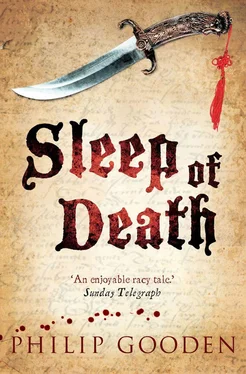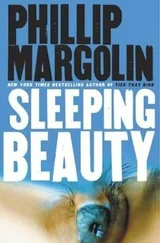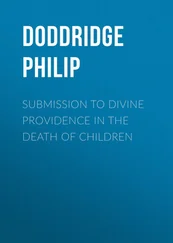Philip Gooden - Sleep of Death
Здесь есть возможность читать онлайн «Philip Gooden - Sleep of Death» весь текст электронной книги совершенно бесплатно (целиком полную версию без сокращений). В некоторых случаях можно слушать аудио, скачать через торрент в формате fb2 и присутствует краткое содержание. Год выпуска: 0101, ISBN: 0101, Издательство: Constable & Robinson, Жанр: Исторический детектив, на английском языке. Описание произведения, (предисловие) а так же отзывы посетителей доступны на портале библиотеки ЛибКат.
- Название:Sleep of Death
- Автор:
- Издательство:Constable & Robinson
- Жанр:
- Год:0101
- ISBN:9781472104311
- Рейтинг книги:5 / 5. Голосов: 1
-
Избранное:Добавить в избранное
- Отзывы:
-
Ваша оценка:
- 100
- 1
- 2
- 3
- 4
- 5
Sleep of Death: краткое содержание, описание и аннотация
Предлагаем к чтению аннотацию, описание, краткое содержание или предисловие (зависит от того, что написал сам автор книги «Sleep of Death»). Если вы не нашли необходимую информацию о книге — напишите в комментариях, мы постараемся отыскать её.
Sleep of Death — читать онлайн бесплатно полную книгу (весь текст) целиком
Ниже представлен текст книги, разбитый по страницам. Система сохранения места последней прочитанной страницы, позволяет с удобством читать онлайн бесплатно книгу «Sleep of Death», без необходимости каждый раз заново искать на чём Вы остановились. Поставьте закладку, и сможете в любой момент перейти на страницу, на которой закончили чтение.
Интервал:
Закладка:
As I have said before, the door to the inner garden was no longer kept locked. I traced my way among the laden fruit trees — for it seemed to be a consequence of the old master’s death that none had been instructed to disburden the trees, and the area had returned, as will all things unregarded, to a state of nature, unweeded and now growing rank with fallen fruit — until I reached the place where Sir William had met his end. Once again, I surveyed the scene. A heavy, golden air hung about the garden. The rays of the declining sun struck across the wall and into my eyes. Blinded, I felt the grooves left in the trunk of the apple by the dead man’s hammock. What did I expect to discover? Unlike the bowed trees, this revisiting of a dead scene was fruitless. Yet before I knew it, I was at the foot of the guilty pear. I hoisted myself aloft and into the fork in the branches where my man had been. And yes, there in the leaf-shadowed bark were the initials, clear WS, not new but not so old neither.
I think, until that moment, I had been hoping that I was in error. I had surely, as it were, misread my tree. But no, I had not.
WS. The playwright, he had sat up the pear.
I settled myself more comfortably. It was a warm evening. I may have fallen asleep for an instant, tired from being a Machiavel’s creature, wearied by the encounter with Old Nick. Anyway, some very short period must have elapsed because I came to myself again with a start. Unthinkingly, I glanced down. At first I thought I was dreaming. I blinked, and blinked again. Then I permitted my scalp to crawl with horror.
There, in the long grass between the two apple trees, lay a dead man.
Now, I had never seen Sir William in the flesh, although I had studied his likeness in a picture in the Eliot household, but I could not doubt that here he was, in the very space (or, to be precise, just below) where his body had been discovered. Nor had I hitherto seen a ghost. Like most thinking men, I have sometimes questioned whether any of us can ever recross that boundary between the here and there. On the other hand, I have — also like most thinking men — felt differently on this question in the middle of the night. Yet this was the early evening, the light was good, and my sight was unimpeded. There lay Sir William outspread beneath the trees.
Then the ghost did something worse than merely lie there. It coughed and scratched at its beard. And all became clear. For this was, of course, no dead Sir William but a living Sir Thomas, come to lay himself down in the very spot where his brother had been taken off. A strange practice. How could I have confused two men who were not, perhaps, so alike after all? With the image of the dead man in my mind’s eye, I had imprinted it on the living one in the grass.
My first concern was to not reveal myself behind my leafy screen. But I hardly had time to wonder what Sir Thomas was doing there, and to ask myself whether it was brotherly or unbrotherly that he should position himself in the place where Sir William had quit this life, when the riddle of his presence was solved. From somewhere in the depths of the orchard appeared my Lady Alice. She was carrying an apple, a bright red apple. Possibly she had been searching one of the neighbour trees for one that was especially to her taste. Or to his taste. For now she bent low over her outstretched husband, who must have heard her rustling approach because he had already turned his head in her direction, and placed the apple, not into the hand that was proffered, but straight into his mouth. Before doing this, however, she rolled the ripe fruit two times up and down, up and down, the snowy slope of her breasts. She was wearing the same low-cut gown as on the evening when she had made the visit to my little room.
I don’t know why, but I blushed, invisible though I was up in the tree, feeling as red as that apple which had just passed from wife to husband. I was spying on an intimate moment between a loving couple, like Polonius hidden behind the arras in Gertrude’s bedroom and eavesdropping on mother and son. If so, better to blush unseen than to cry out loud and receive Polonius’s penalty. Nor could I, ever the seeker-out of parallels, avoid the analogy between this apple scene and that of our first parents in a garden (I am not a parson’s son for nothing).
Sure enough, the sequel to this apple-offering was reminiscent of what followed for Adam and Eve after they had shared the gift of the forbidden tree. Sir Thomas, pausing only to remove the fruit wedged in his mouth, reached up and pulled down his wife, who was bending low enough for her tits to be near tumbling from her gown, so that she almost fell on top of him. My view was good, only a little obscured by the leaves of the pear tree; indeed there was almost a pure rectangular space made by the branches and through which I peered as if into the heart of a picture. They rolled around on the grass for a time, laughing slightly, snorting a little. My face caught fire anew. These people were old enough to be my parents, for God’s sake! I did not wish to witness several minutes of cut-and-thrust-and-shudder (though, if I am to be absolutely honest with myself and with you, I was not totally averse to witnessing it either).
But something happened to the couple in the grass, or rather didn’t happen, as it does sometimes. After a few moments, without a sign of impatience or anger from either party, Lady Alice and her husband simply disengaged themselves and, while he remained lying in the long grass, she sat up beside him, rearranging her dress. I couldn’t see the expression on her face, since she was turned sideways, but I could hear her voice well enough.
‘Well, Thomas, this can wait.’
‘Hasty journeys breed dangerous sweats,’ said he.
‘At our age, the bed is better,’ said she.
‘My dear, I wonder whether it is because this was the spot. .’
‘I don’t think of him.’
‘But you used to come here together?’
‘You are too nice, Thomas, to remember what I told you once. You are too curious.’
‘You told me a great deal then, and not only in words.’
Saying this, he raised himself slightly from the ground and gave her an affectionate kiss, which she returned, equally lovingly.
‘Now we can speak plain. Then we had to do much in dumb-show,’ said Lady Alice.
‘Like the prologue to a play,’ said Sir Thomas, rather grimly. ‘Tell me, why has your son invited this player to lodge with us?’
Up in the pear tree, I felt the sweat break out across my forehead.
‘There is no harm in Master Revill, even if he does seem to be rather full of himself.’
Had I been free to do so, I would have bridled at this comment of hers.
‘What does your son want with him?’
‘Our son.’
‘Our son.’
‘You know how he is drawn to the playhouse. If he were not a gentleman I believe that he might have turned player himself.’
‘I sometimes think William — I mean, William my brother — had the right idea about players and playhouses. To keep them all at arm’s length.’
‘Hang him!’ said Lady Alice, with a sudden, almost shocking burst of energetic spite. ‘He had no pleasures. He could not go, for certain he could not go.’
‘And you could raise the dead, my dear.’
‘Don’t.’
And she seemed, to my eyes, to shiver slightly as she glanced around. For a moment her gaze came to rest on where I sat aloft. Fortunately, I was not wearing anything gaudy, but in any case her mind was elsewhere.
‘Oh, he had no pleasures,’ she repeated, in an abstracted tone.
‘ — except his habit of coming alone into this garden,’ Sir Thomas cut in. They sniggered together, like naughty boy and bad girl. A fresh wave of sweat poured off my brow.
Читать дальшеИнтервал:
Закладка:
Похожие книги на «Sleep of Death»
Представляем Вашему вниманию похожие книги на «Sleep of Death» списком для выбора. Мы отобрали схожую по названию и смыслу литературу в надежде предоставить читателям больше вариантов отыскать новые, интересные, ещё непрочитанные произведения.
Обсуждение, отзывы о книге «Sleep of Death» и просто собственные мнения читателей. Оставьте ваши комментарии, напишите, что Вы думаете о произведении, его смысле или главных героях. Укажите что конкретно понравилось, а что нет, и почему Вы так считаете.












